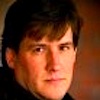There is a movement in the audio industry. Artists and engineers are taking a look at the cold hard Sound Pressure Level (SPL) facts. Most commercial events have loudness levels and exposure times exceeding OSHA's limits for the workplace.
Let there be no misunderstanding. I have worked for one of the loudest guitar players on the planet, and I am sure we have hurt some people. After a show, a fan came up to me and said. "I never had guitar feedback punch me in the chest like that." Also that night, one of Elvis Presley's original studio players was in the house. He commented on being able to hear WELL without his hearing aids. I was guilty of excessive SPL's. I have changed my ways. It is time for those of us in the Church to follow the example, and take a look/listen at our own excessive SPL's.
There have been many bands, promoters and venue owners sued over hearing loss. If YOU buy a ticket to Metallica, and YOU know what the band is, what music they play, and what they represent, then YOU (in my
book of common sense) are responsible to either not go, or bring hearing protection. DUH! These lawsuits may have been silly, but they are a wake-up call. We should be as cautious about an incident like this, as
we would a "slip and fall." Both of these events can have a BIG impact on your insurance rates, and presence of OSHA, state and federal representatives inyour facility.
Without getting too technical, lets look at somefacts. Our hearing system can experience three types of hearing loss: Conductive, Sensorineural, and Mixed. Conductive hearing loss can occur if the structures of the outer ear to middle ear do not work properly. Conductive loss is more likely to respond to medical and/or surgical treatment. Sensorineural loss is nerve deafness. Sensorineural loss is more permanent. Mixed includes both of these types. We are most concerned with preventing nerve deafness, as it is attributed to high SPL's and/or high SPL's for extended exposure times. Leon has an article with an SPL chart in it, so I won't replicate one here. Suffice it to say, that if you are averaging 90dB or above for the duration of the service, then you are too loud!
A loss of up to 20dB Hearing Level (HL) is considered "normal" hearing. A loss of 21-45dB HL is considered "mild." People with a "mild" loss may experience difficulty understanding a soft spoken person or
God made our hearing to be especially sensitive to the human vocal range. Specific frequencies are very important for speech to be intelligable. Our vowel energy is below 1kHz. Above 1kHz is the information needed for consonants. 44% of our comprehension is between 1.5kHz and 3kHz. A person with moderate loss might have a loss below 1kHz, and a substantial loss in the upper frequencies, and still hear sounds like l, b, m, a, but would not be able to hear sounds like p, k, sh, th, etc..
I'll be honest. As a techinal director, I would dread the Tuesday morning staff meetings. I would get compliments and complaints about the same issue. People with "normal" hearing heard how great the sound was. People without hearing complained that it wasn't intelligable. They felt the SPL through conductivity, but it was muffled sensorineurally. What did I do? Education and hearing testing. I am not going to say that the problems went away, but it helped. People with hearing loss are generally in denial, and very proud. Ironically they where glasses that tells the
My brother, Brian Handy, Ph.D., and I saw a need years ago for education in the Church. Churches need to know that they must stop endangering the hearing systems. We wouldn't think of damaging the eyesight with blinding light or lasers in the retina. So why damage one of the other senses? We cannot make it to every church that calls us. I have listed some organizations that you may contact. They can connect
To find speech-language pathologists and audiologists, contact the American Speech and Hearing Association (ASHA) at www.asha.com. To find your state board certified specialists, contact www.hearingbc.org. The International Hearing Society can recommend hearing professionals by contacting them at www.ihinfo.org. The National Institute on Deafness Other Communication Disorders (NIDCD) and Hereditary Hearing Impairment
Special thanks to Brian Handy, Ph.D., for the resources and contributions to this article.
speech at a distance. Understanding speech over background noise may be difficult. "Moderate" loss is 46-65dB HL. People with this loss have a hard time with one on one speech in any environment. Trying to hear over background noise is extremely difficult. "Severe" loss, 66-85dB HL prohibits conversation, unless the speaker is talking loudly at close range. The last step is "profound" loss, from 86dB HL on up. Communicating is generally used by other means, as they cannot hear even the loudest sounds.
world that they can't see well, but they won't wear an invisable hearing device that will help them get back to experiencing life aurally.
you with certified specialists in your area, that will help meet the needs of the hearing impaired in your membership. This may also be a great way to minister to your local community as well.
Resource Registry (HHIRR) can be contacted at 1-800-320-1171.

 Experiencing Worship, The Study
Experiencing Worship, The Study